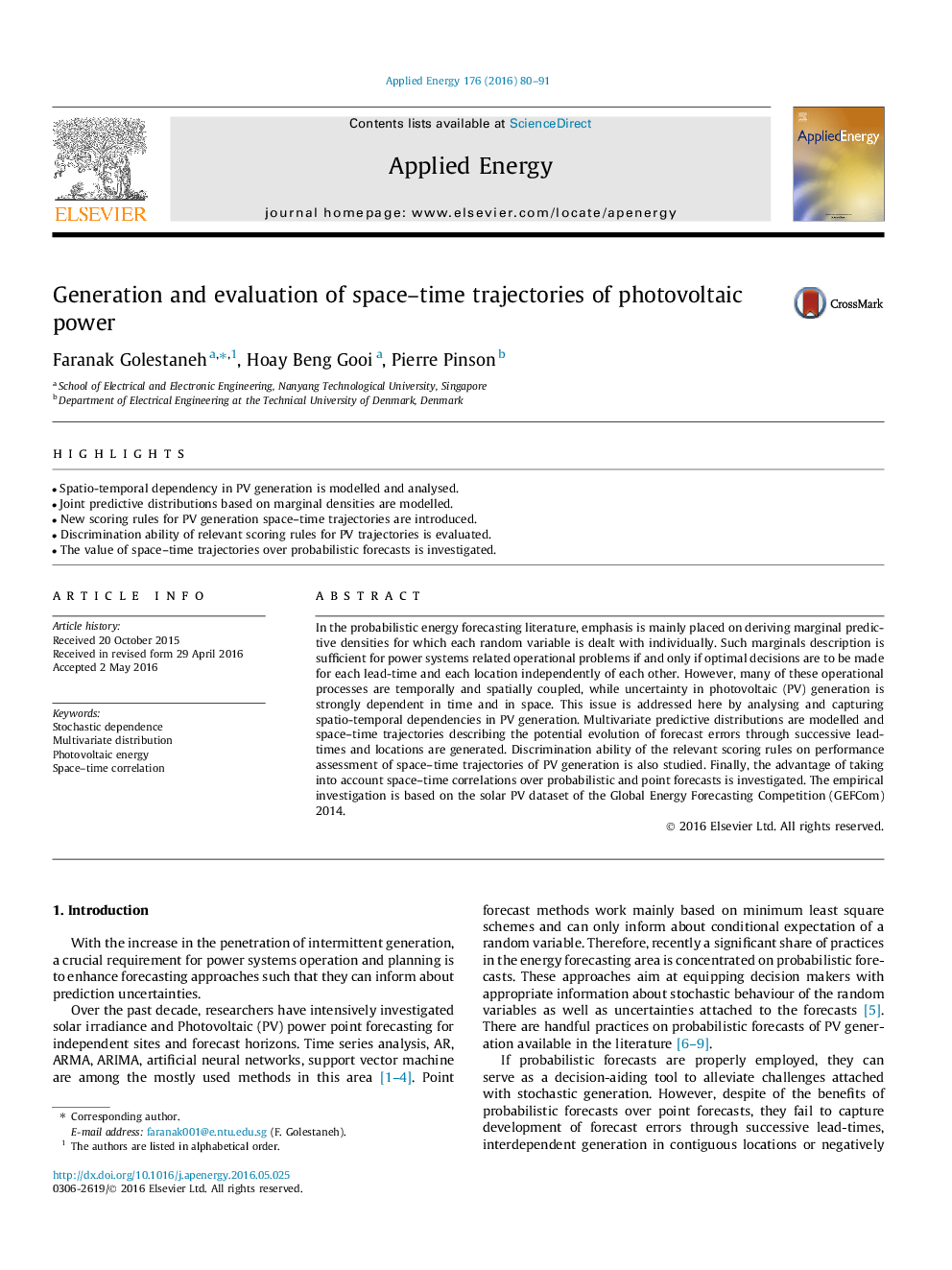| Article ID | Journal | Published Year | Pages | File Type |
|---|---|---|---|---|
| 6682864 | Applied Energy | 2016 | 12 Pages |
Abstract
In the probabilistic energy forecasting literature, emphasis is mainly placed on deriving marginal predictive densities for which each random variable is dealt with individually. Such marginals description is sufficient for power systems related operational problems if and only if optimal decisions are to be made for each lead-time and each location independently of each other. However, many of these operational processes are temporally and spatially coupled, while uncertainty in photovoltaic (PV) generation is strongly dependent in time and in space. This issue is addressed here by analysing and capturing spatio-temporal dependencies in PV generation. Multivariate predictive distributions are modelled and space-time trajectories describing the potential evolution of forecast errors through successive lead-times and locations are generated. Discrimination ability of the relevant scoring rules on performance assessment of space-time trajectories of PV generation is also studied. Finally, the advantage of taking into account space-time correlations over probabilistic and point forecasts is investigated. The empirical investigation is based on the solar PV dataset of the Global Energy Forecasting Competition (GEFCom) 2014.
Related Topics
Physical Sciences and Engineering
Energy
Energy Engineering and Power Technology
Authors
Faranak Golestaneh, Hoay Beng Gooi, Pierre Pinson,
